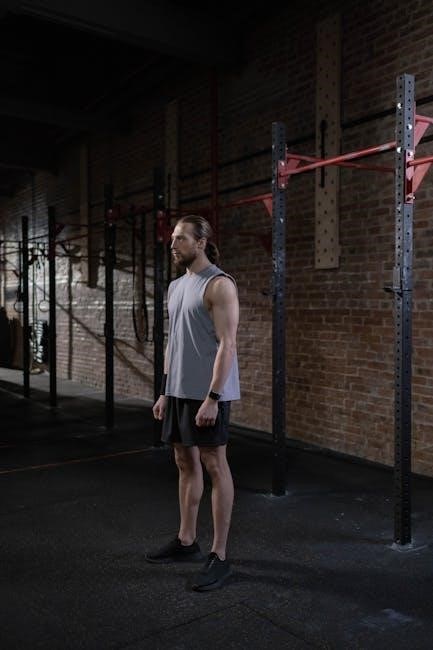serious health condition form colorado pdf
The Colorado Serious Health Condition Form is a legal document used to certify medical leave under the Family and Medical Leave Act (FMLA) and Colorado’s FAMLI program․
1․1 Overview of the Form and Its Purpose
The Colorado Serious Health Condition Form is a document used to certify an employee’s or family member’s medical condition for leave requests under the FMLA and Colorado’s FAMLI program․
This form is essential for verifying the legitimacy of medical leave requests‚ ensuring compliance with federal and state regulations․ It provides employers or insurance providers with necessary details about the condition‚ including its severity and required care․ Employees must submit this form‚ completed by a healthcare provider‚ to support their leave applications․ The form is specifically designed to protect employees’ rights while maintaining transparency in the leave process․ It ensures that all parties involved understand the medical circumstances and the need for time off․ Proper completion and submission of this form are critical for a smooth approval process․

Definition of a Serious Health Condition Under FMLA
A serious health condition under FMLA is an illness‚ injury‚ impairment‚ or physical/mental condition requiring inpatient care or ongoing treatment by a healthcare provider‚ as certified․
2․1 Inpatient Care Requirements
Inpatient care under the FMLA involves an overnight stay in a hospital‚ hospice‚ or residential medical facility․ This requirement is strictly defined and must be certified by a healthcare provider․ The care must be medically necessary and supervised by a licensed professional․ For example‚ surgeries requiring hospitalization or conditions needing continuous monitoring qualify․ Documentation from the facility‚ including admission and discharge dates‚ is often required․ This ensures the condition meets FMLA standards for a serious health condition‚ enabling eligible employees to take medical leave․ The certification process verifies the necessity of inpatient care‚ ensuring compliance with federal regulations․
2․2 Continuing Treatment by a Healthcare Provider
Continuing treatment by a healthcare provider involves ongoing medical care for a serious health condition․ This includes regular visits‚ therapy‚ or medication under a provider’s supervision․ Conditions like chronic illnesses‚ mental health disorders‚ or post-surgery recovery qualify if they require persistent care․ The healthcare provider must certify the necessity and duration of treatment․ This certification ensures the condition meets FMLA standards‚ allowing employees to take leave; Documentation may include treatment plans‚ medication schedules‚ or therapy sessions․ The provider’s role is to confirm the condition’s severity and the need for ongoing care‚ supporting the employee’s eligibility for medical leave under Colorado’s FAMLI program and federal FMLA regulations․
2․3 Examples of Serious Health Conditions
Serious health conditions include illnesses‚ injuries‚ or impairments requiring medical intervention․ Examples are surgeries‚ hospitalizations‚ chronic diseases like diabetes or arthritis‚ and mental health disorders such as depression or anxiety․ Conditions requiring ongoing treatment‚ like cancer‚ stroke recovery‚ or heart disease‚ also qualify․ Pregnancy-related complications and terminal illnesses are included․ These examples align with FMLA and Colorado’s FAMLI program‚ ensuring employees can take necessary leave․ The healthcare provider’s certification is crucial to validate the condition’s severity and the need for care‚ enabling eligible leave under both federal and state regulations․
Colorado-Specific Regulations for Serious Health Conditions
Colorado’s FAMLI program aligns with FMLA‚ offering paid leave for serious health conditions․ The state-specific form certifies eligibility for medical or caregiving leave under Colorado regulations․
3․1 Colorado Paid Family and Medical Leave Insurance (FAMLI)
Colorado’s Paid Family and Medical Leave Insurance (FAMLI) provides eligible employees with partial wage replacement for up to 12 weeks of leave․ This includes caring for a family member with a serious health condition or the employee’s own condition․ To qualify‚ employees must submit the completed Form CO PFML-1 along with a medical certification from a healthcare provider․ The certification ensures the condition meets FAMLI’s standards‚ such as requiring inpatient care or ongoing treatment․ The program is administered by the Colorado Department of Labor and Employment‚ ensuring compliance with both state and federal regulations․ This initiative supports workers balancing health and family responsibilities effectively․
3․2 State Definitions Aligning with FMLA
Colorado’s definition of a serious health condition aligns closely with the federal Family and Medical Leave Act (FMLA)․ Under both state and federal regulations‚ a serious health condition is defined as an illness‚ injury‚ impairment‚ or physical or mental condition requiring inpatient care or continuing treatment by a healthcare provider․ This alignment ensures consistency for employers and employees‚ avoiding conflicts between state and federal laws․ Colorado’s adherence to FMLA standards simplifies the process for those seeking medical leave‚ as the criteria for certification remain uniform․ This harmonization also aids healthcare providers in understanding and accurately certifying conditions‚ ensuring compliance and facilitating a smoother experience for all parties involved․
Eligibility Criteria for Using the Form
Eligibility criteria involve specific requirements for employees and family members‚ including employment duration‚ hours worked‚ and details about the serious health condition necessitating leave․
4․1 Employee Eligibility for Medical Leave
Employees in Colorado are eligible for medical leave if they meet specific criteria under the FMLA and Colorado’s FAMLI program․ To qualify‚ employees must have worked for their employer for at least 12 months and have completed 1‚250 hours of service in the 12 months preceding the leave․ The leave must be for a serious health condition that renders the employee unable to perform essential job functions․ This condition may include inpatient care or ongoing treatment by a healthcare provider․ Additionally‚ the employee must provide medical certification from a licensed healthcare provider to support their eligibility․ Employers may request verification of the medical condition to ensure compliance with FMLA and FAMLI regulations․
4․2 Family Member Eligibility for Caregiving Leave
In Colorado‚ employees may take leave to care for a family member with a serious health condition under the FMLA and FAMLI program․ Eligible family members include a spouse‚ parent‚ child‚ or domestic partner․ The family member must have a serious health condition‚ defined as an illness‚ injury‚ or impairment requiring inpatient care or ongoing treatment by a healthcare provider․ Employees must provide medical certification (e․g․‚ Form WH-380-F) from the family member’s healthcare provider․ The certification must detail the condition‚ treatment‚ and the employee’s role in caregiving․ This leave allows employees to provide physical or psychological support to their loved ones during recovery or treatment‚ ensuring work-life balance and compliance with state and federal regulations․

The Process of Obtaining and Completing the Form
The Colorado Serious Health Condition Form can be obtained online or through HR․ Employees must download‚ complete‚ and submit it with required medical certification․
5․1 Where to Find the Colorado Serious Health Condition Form
The Colorado Serious Health Condition Form can be easily accessed online through the official Colorado FAMLI website or via the TemplateRoller platform․ It is available in both PDF and Word formats‚ ensuring flexibility for users․ Additionally‚ employees may obtain the form directly from their employer’s HR department‚ as many companies provide this document to facilitate the leave application process․ The form is designed to be user-friendly‚ allowing individuals to download‚ fill out‚ and submit it efficiently․ This accessibility ensures that employees can quickly initiate their medical leave requests without unnecessary delays․
5․2 Role of the Healthcare Provider in Certification
The healthcare provider plays a crucial role in certifying the serious health condition by completing the required sections of the form․ They must provide detailed medical information‚ including the date the condition began‚ the nature of the illness or injury‚ and the expected duration of treatment․ The provider is also required to specify if the condition necessitates ongoing care or periodic visits․ Additionally‚ they must certify whether the patient is unable to work or requires care from a family member․ The provider’s signature and contact information are mandatory for the form to be valid․ This certification ensures the legitimacy of the medical leave request under FMLA and Colorado’s FAMLI program․
5․3 Employee Responsibilities for Form Completion
Employees must accurately complete their portion of the Colorado Serious Health Condition Form‚ providing personal and leave details․ They are responsible for ensuring all sections are filled out correctly and submitting the form to their employer or FAMLI administrator․ Employees must retain a copy for their records and ensure timely submission to avoid delays in processing․ They should also follow up with their healthcare provider to confirm certification and ensure the form is returned promptly․ Accurate and complete information is essential for a smooth review process‚ helping to prevent denial of benefits․ Employees should carefully review the form before submission to ensure compliance with FMLA and Colorado FAMLI requirements․

5․4 Required Information for Certification
The certification requires detailed medical information‚ including the date the condition began‚ prognosis‚ and any work-related limitations․ The healthcare provider must specify the nature of the condition‚ treatment details‚ and expected duration․ For continuing treatment‚ documentation of ongoing care‚ such as therapy or medication‚ is necessary․ Inpatient care details‚ including dates and facility names‚ must be provided․ The form also asks for the provider’s professional opinion on the employee’s ability to work․ Employees must ensure all sections are completed accurately and submitted promptly․ Complete and accurate information is essential for a smooth review and approval process‚ ensuring compliance with FMLA and Colorado FAMLI requirements․

Required Documents and Attachments
Required documents include the completed certification form‚ medical records‚ and any additional proof of the serious health condition․ Attachments may involve treatment plans or hospital records․
6․1 Supporting Medical Documentation
Supporting medical documentation is essential to validate the serious health condition․ This includes detailed records from healthcare providers‚ such as diagnoses‚ treatment plans‚ and hospital discharge summaries․ These documents must clearly outline the nature and severity of the condition‚ confirming it meets FMLA and Colorado FAMLI criteria․ Additional records like test results or specialist referrals may also be required to provide a comprehensive understanding of the health issue․ Ensuring all documents are up-to-date and legible is crucial for a smooth review process․ This documentation serves as the foundation for approving medical leave requests․
6․2 Additional Forms for Leave Requests
Beyond the medical certification‚ additional forms may be required to complete a leave request․ The Request for Colorado Paid Family and Medical Leave (Form CO PFML-1) is often necessary to initiate the process․ Depending on the situation‚ optional DOL forms like WH-380-F for family member care or WH-380-E for the employee’s condition may be used․ These forms ensure compliance with FMLA and Colorado FAMLI standards․ Employees should also check with their employer for any internal forms or procedures․ Submitting all required documents together helps streamline the review process․ Ensure all forms are completed accurately and signed by the appropriate parties to avoid delays․
Submission and Review Process
Completed forms are submitted to The Standard or New York Life Group Benefit Solutions for review․ The employer or insurer verifies the information for FMLA compliance․
7․1 Submitting the Completed Form
Employees must submit the completed Colorado Serious Health Condition Form to The Standard or New York Life Group Benefit Solutions․ Ensure all sections‚ including healthcare provider certifications‚ are filled out accurately․ Retain a personal copy for records․ The form can be downloaded as a PDF or Word document from platforms like TemplateRoller․ Submission methods may vary‚ but mailing or uploading through specified portals is common․ Ensure timely submission to avoid delays in processing․ Verify the submission address or online portal with your employer or FAMLI program․ Proper submission ensures eligibility review for Colorado Paid Family and Medical Leave Insurance benefits․ Always follow the provided instructions carefully․
7․2 Employer or Insurance Review Procedures
Employers or insurance providers‚ such as The Standard or New York Life Group Benefit Solutions‚ review the submitted Colorado Serious Health Condition Form to verify eligibility for leave benefits․ They check the form for completeness‚ accuracy‚ and compliance with FMLA and FAMLI requirements․ The healthcare provider’s certification is scrutinized to ensure the condition meets the criteria for a serious health condition․ If additional information is needed‚ the reviewer may contact the employee or provider for clarification․ Once validated‚ the form is processed to determine benefit approval․ This step ensures adherence to legal standards and proper administration of medical leave benefits under Colorado’s paid family and medical leave programs․

Processing and Approval of the Form
The Colorado Serious Health Condition Form is processed by employers or insurance providers to determine eligibility for medical leave benefits under FAMLI and FMLA․
8․1 Timeline for Processing Requests
The processing timeline for the Colorado Serious Health Condition Form typically begins once all required documents are submitted to the employer or insurance provider․ The review process generally takes 10-15 business days‚ though this may vary depending on the complexity of the case or additional verification needs․ Employers or FAMLI administrators must notify the applicant in writing once a decision is made․ If approved‚ the leave benefits are granted‚ and the employee can proceed with their medical or caregiving responsibilities․ Delays may occur if incomplete or missing information is provided‚ emphasizing the importance of thorough form completion․ Communication is key to ensuring a smooth process․
8․2 Communication of Approval or Denial
Once the review process is complete‚ the employer or FAMLI administrator will communicate the decision in writing to the applicant․ Approval notifications will outline the details of the leave‚ including the start date‚ duration‚ and any further instructions․ If denied‚ the notification will specify the reasons for denial‚ ensuring clarity and transparency․ Applicants have the right to appeal a denial‚ and the communication will typically include information on how to initiate the appeals process․ Clear and timely communication is essential to ensure employees understand their options and next steps‚ maintaining trust and fostering a smooth leave management experience․

Denial of the Serious Health Condition Form
The form may be denied if it lacks required information‚ fails to meet FMLA criteria‚ or does not adequately certify a serious health condition․
9․1 Reasons for Denial
The Colorado Serious Health Condition Form may be denied for several reasons‚ including incomplete or missing information‚ insufficient medical documentation‚ or failure to meet FMLA criteria․ If the form lacks required details‚ such as the start date of the condition or the healthcare provider’s certification‚ it may be rejected․ Additionally‚ if the condition does not meet the definition of a serious health condition under FMLA‚ such as not requiring inpatient care or ongoing treatment‚ the request may be denied․ Discrepancies in the information provided or failure to submit the form within the required timeframe can also lead to denial․ Employers or FAMLI may request additional documentation to resolve discrepancies․
9․2 Appealing a Denial
If the Colorado Serious Health Condition Form is denied‚ employees have the right to appeal the decision․ The appeal process typically involves submitting additional documentation or clarifying information to address the reasons for denial․ Employees may need to provide more detailed medical records or obtain further certification from their healthcare provider․ It is important to review the denial notice carefully‚ as it often outlines specific steps or evidence required for reconsideration․ The appeal must be submitted within the designated timeframe‚ usually specified by the employer or the Colorado FAMLI program․ Consulting with HR or legal experts can also help navigate the appeal process effectively․

Legal Implications and Compliance
All employers in Colorado must comply with FMLA and state laws by ensuring proper handling of serious health condition forms to maintain legal compliance and avoid penalties․
10․1 FMLA Compliance Requirements
Under the FMLA‚ employers must ensure compliance with federal regulations when handling serious health condition forms․ The FMLA defines a serious health condition as requiring inpatient care or continuing treatment by a healthcare provider․ Employers are legally obligated to accept proper medical certifications‚ such as DOL forms WH-380-E or WH-380-F‚ to validate an employee’s or family member’s condition․ Failure to comply with FMLA requirements can result in legal penalties․ Employers must maintain confidentiality of medical records and avoid requesting unnecessary details․ Proper adherence to FMLA guidelines ensures fair leave administration and protects both employees’ rights and employers’ legal standing․ Compliance is non-negotiable under federal law․
10․2 State of Colorado Legal Standards
Colorado adheres to both federal FMLA and state-specific regulations‚ such as the Paid Family and Medical Leave Insurance (FAMLI) program․ The state defines a serious health condition similarly to FMLA‚ requiring inpatient care or ongoing treatment by a healthcare provider․ Colorado employers must comply with FAMLI‚ which provides eligible employees with paid leave for qualifying conditions․ The state mandates that employers accept certified medical documentation‚ such as the Colorado Medical Certification Form‚ to substantiate leave requests․ Non-compliance with these standards can result in legal consequences․ Colorado’s legal framework ensures alignment with federal laws while offering additional protections and benefits to employees‚ fostering a balanced approach to workplace health and family needs․
Where to Seek Further Assistance
For further assistance‚ contact Colorado FAMLI or consult legal/HR experts for guidance on serious health condition forms and compliance․
11․1 Contacting Colorado FAMLI for Support
Employees and employers can contact Colorado’s Paid Family and Medical Leave Insurance (FAMLI) program for assistance with serious health condition forms․ FAMLI provides guidance on form completion‚ eligibility criteria‚ and submission processes․ Individuals can reach out via phone‚ email‚ or through the official FAMLI website․ The program offers resources to help navigate medical leave applications‚ ensuring compliance with state and federal regulations․ FAMLI support specialists are available to address questions and concerns‚ making the process smoother for those seeking to care for themselves or family members․ This direct line of support ensures accurate and timely processing of medical leave requests․
11․2 Consulting Legal or HR Experts
Consulting legal or HR experts is crucial for navigating the complexities of serious health condition forms in Colorado․ Legal professionals can provide guidance on compliance with FMLA and FAMLI regulations‚ ensuring that all rights and obligations are understood․ HR experts can assist employers in drafting policies and procedures related to medical leave‚ while also helping employees understand their entitlements․ These specialists can review forms for accuracy‚ address disputes‚ and offer tailored advice to avoid legal pitfalls․ Their expertise ensures that the process is smooth and fair for all parties involved‚ fostering a supportive environment for employees seeking medical leave․ This step is vital for maintaining compliance and fairness․
